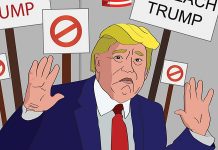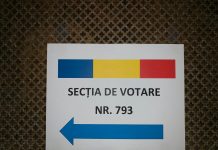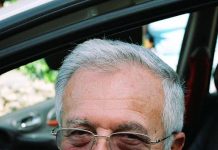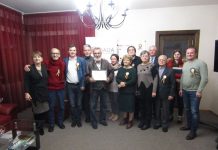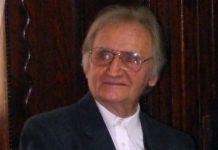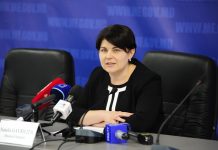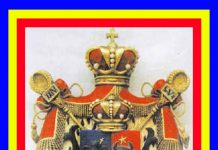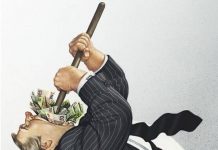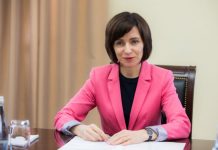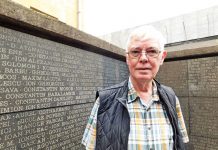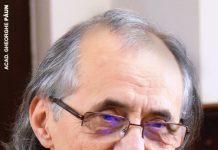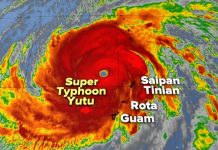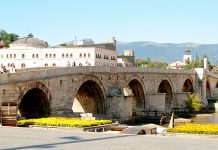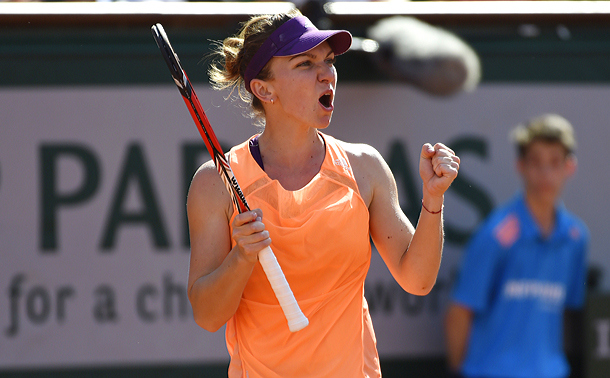Execuţia lui Ceauşescu după 14 ani
“WE KNEW THE ENDING”
Octavian Gheorghiu: We knew that we’d shoot the Ceausescus. We were clearly told that they would be judged and then executed. We were even showed the wall where we were to execute them. ţFormer army] general ţVictor Atanasie] Stanculescu also told us how many cartridges we had to shoot: 30 each. ţTOL: Deputy defense minister after 1989, Stanculescu was sentenced in the summer of 1999 to 15 years in prison for participating in the attempted suppression of an anti-communist revolt that began in Timisoara in December 1989. Recently, the Romanian High Court of Justice decided to revisit his case.]
The sentence was decided before the trial and had to be carried out. Years afterward, we realized that we were just tools in this affair and we fell into a fool’s trap. It seems to me that those who make a decision should carry it out themselves, not through other people. And to shoot 30 bullets from such a small distance. Even with a rudimentary Carpati pistol, that would be enough ţto do the job].
ţNicolae Ceausescu] was maybe a bit uglier, with not much makeup. He looked very tired, but I didn’t notice anything strange. He wasn’t agitated at all. Maybe he was glad to be moving, getting out of the ironclad, narrow and cold, small tank he was transported in. The other soldiers and I didn’t enter the office where the medical checkup took place. After some 10 minutes, the Ceausescus came out and entered the hall where the trial took place. ţSoldier Ionel] Boeru also entered. Afterward, I found out that in case something happened, Boeru had the order to execute the couple. Dorin Carlan and I were ordered not to allow anyone into the hall and to guard the door of the building. We were ordered to kill anyone who wanted to enter the hall. … We not only stayed close to the door, but stuck to it. We had the bullet in the barrel. Stanculescu warned us not to trust anyone in the unit. We didn’t allow anyone to get closer than two meters.
I was eavesdropping through the door, and I realized that the trial had been very well prepared. I could hear perfectly.
In the middle of the trial, the unit’s commandant approached and told us he had received a phone call from Bucharest, and he wanted to get into the hall. We asked him whom the phone call was from, and he repeated, “From Bucharest.” Then, Gelu Voican-Voiculescu ţTOL: One of the members of the panel of judges, he was appointed Romania’s ambassador to several countries after the revolution.] came out to talk to the commandant. The judge returned within a few minutes and one of the soldiers in the entrance hall asked him what had happened. He answered that he had received an order to finish as soon as possible. He wouldn’t say from whom or what. We asked, meanwhile, for beds, tarpaulins and ropes to tie up the Ceausescus.
At some point, the Ceausescus’ appointed lawyer came out of the hall. He was deeply affected. He told us with a trembling voice, “I gave them the chance to escape, and they refused me. I told them to declare that they weren’t mentally healthy so, by law, they couldn’t be sentenced to death.” I think he knew that the sentence had been decided already. Years later, I thought that maybe he had wanted witnesses to know that he offered the Ceausescus a chance.
… During the trial, Nicolae Ceausescu didn’t want to speak, to confess. He kept saying that he would respond only in front of the ţcommunist] Great National Assembly. ţElena Ceausescu] had become more and more agitated. The trial was very short, 30 minutes. I heard the sentence through the door, “The Ceausescu couple is condemned to death.” But the two still refused to speak, except to say that they would speak only in front of the Great National Assembly.
SINGING AND SHOUTING SLOGANS BEFORE DEATH
Octavian Gheorghiu: After the reading of the sentence, the doors opened. I entered and went to tie her up. Another soldier in the eight-member team charged with guarding the dictator and his wife was called in to tie him up. I didn’t manage to tie her; she was ripping and tearing, saying that we were her children, that she raised us, which made me even more determined. I swore a bit at her. I was tired and nervous and stressed. I didn’t care about what she was saying. Another soldier and I practically picked her up.
ţNicolae Ceausescu] gave up after he was asked to do so. After we left the building, he started to sing, quite loudly, “The International.” Then he said, “Long live the Romanian Communist Party,” and, finally, he said, “History will vindicate me.” ţTranslator: The Romanian phrase is ambiguous, and could also be translated as “history will vindicate me.”] Elena was about a meter behind him. From the door of the building to the wall was nearly 15 meters. We reached the wall, put them with their backs to the wall and their faces to us. I got back immediately, but not more than five or six meters, and we started to shoot.
There was no order. When I heard my colleagues fire, I also put the pistol on automatic and shot all 30 cartridges, as I’d been ordered to. ţNicolae Ceausescu] uttered the sentence, “History will avenge me” just before we fired, when he was still facing us. It happened too fast; we fired just as he was finishing his sentence. They didn’t try to run away, to hide, to look down. They were dignified.
We covered them in tarps. They were left with their arms tied. The soldiers in the unit were all gaping. We could hear just the helicopters starting the engines.
When we returned to our unit in Boteni, the unit’s doctor talked to us. He asked us if we had problems, nightmares, if we had remorse.
The panel of judges disappeared from this entire story as soon as helicopters landed after the trial. They got on the small tanks they had arrived by and disappeared. …
I didn’t regret then and I don’t regret even today that I shot Ceausescu and his wife. I’m just disappointed that we were manipulated. I believe even now that there was no other way. If we had taken them into the public square, the crowd would have torn them apart.
“I WOULDN’T DO IT AGAIN”
Dorin Carlan: ţWhen General Stanculescu] asked us, “Do you agree to execute the death penalty if they are sentenced to death?” we said an anemic “yes,” and looked at each other. I don’t know whether my colleagues remember. After that, Stanculescu told us, “I don’t like it. Raise your hands.” We all raised our hands. After that, he said, “I don’t like this, either. All eight step forward. Then I will choose. You, you and you.” He told us what our missions were. At the time, we acted on behalf of 23 million Romanians.
Ionel Boeru: When Stanculescu asked me if I could do it, that was practically an order. if I said that I wasn’t able, I could have been shot dead. When I took the Ceausescus to the wall, I can say that I acted like a robot because I thought that we had been ordered to shoot 30 cartridges on automatic from the thigh. I was also wondering if we would be able to carry out the sentence because it could happen the way it did with Mussolini, when the pistols didn’t work. Or it could happen that all of us missed. Be sure that if we hadn’t done it, there were two or three other groups of soldiers who would have carried out the sentence.
Dorin Carlan: Realizing that these were her last moments, ţElena Ceausescu] told us all to go to hell. General Stanculescu took command like a true army general and said, “Tie them and take them to wall. First him and then her.” “And what shall we do with them?” ţwe asked.] “Shoot them.” ţElena Ceausescu] started to say, “You, kids, I raised you, I gave you ranks, positions, and now you tie our hands and scoff at us as if we were some wretches.” But realizing that she was about to die, she said that if she was to be killed, she wanted to die next to her husband. “We fought together; I want to die together.”
Ionel Boeru: As soldiers, our mission is to kill. But not in the situation we were dragged into, to form execution squads. It was very hard, especially when a man was looking into your eyes. When you shoot somebody at 200 to 300 meters and you don’t know who he is, it’s different: it’s your job as a soldier–you defend your country. During the execution, there was also some other shooting, at some point even from a small tank.
At that point I thought they were going to shoot us, too. At that point, I turned to the audience and said that we did it to avenge those who died in the revolution in Bucharest and Timisoara. Then General Stanculescu told us to calm down.
Dorin Carlan: I was more of a communist. I believed in ţCeausescu’s] speeches, in his texts, in his congresses. I was his product. In a way, I was driven by a proletarian wrath. If I’m not wrong, the entire trial had this character. We were angry at the system and not at the man Ceausescu. Anyway, I wouldn’t do this ţagain], and I wouldn’t wish such an experience on anyone. To take someone’s life violates biblical teachings. We’ve already been booed, cursed for what we did on the holy day of Christmas. Every Christmas, you can be sure that we’re not doing OK. Not even on 26 January. ţCeausescu’s birthday]. I wouldn’t do it again.
Adapted and translated by Marius Dragomir
This article was first published by Transitions Online (TOL) at www.tol.cz.





